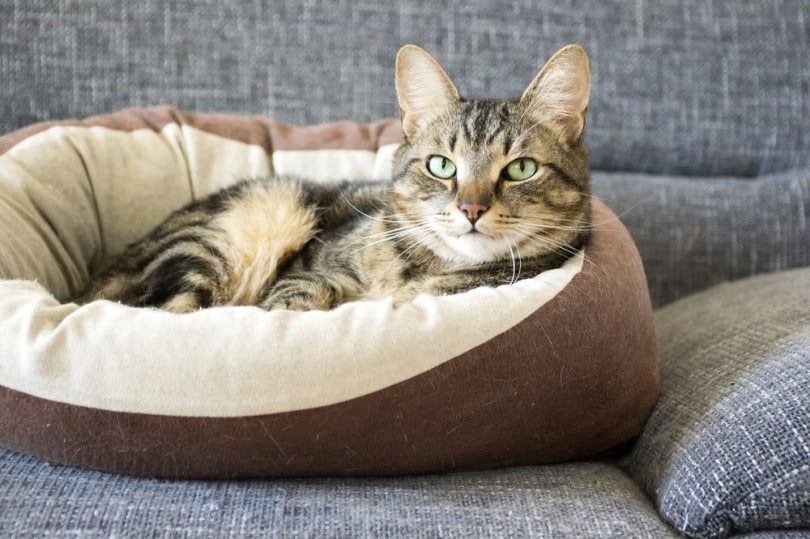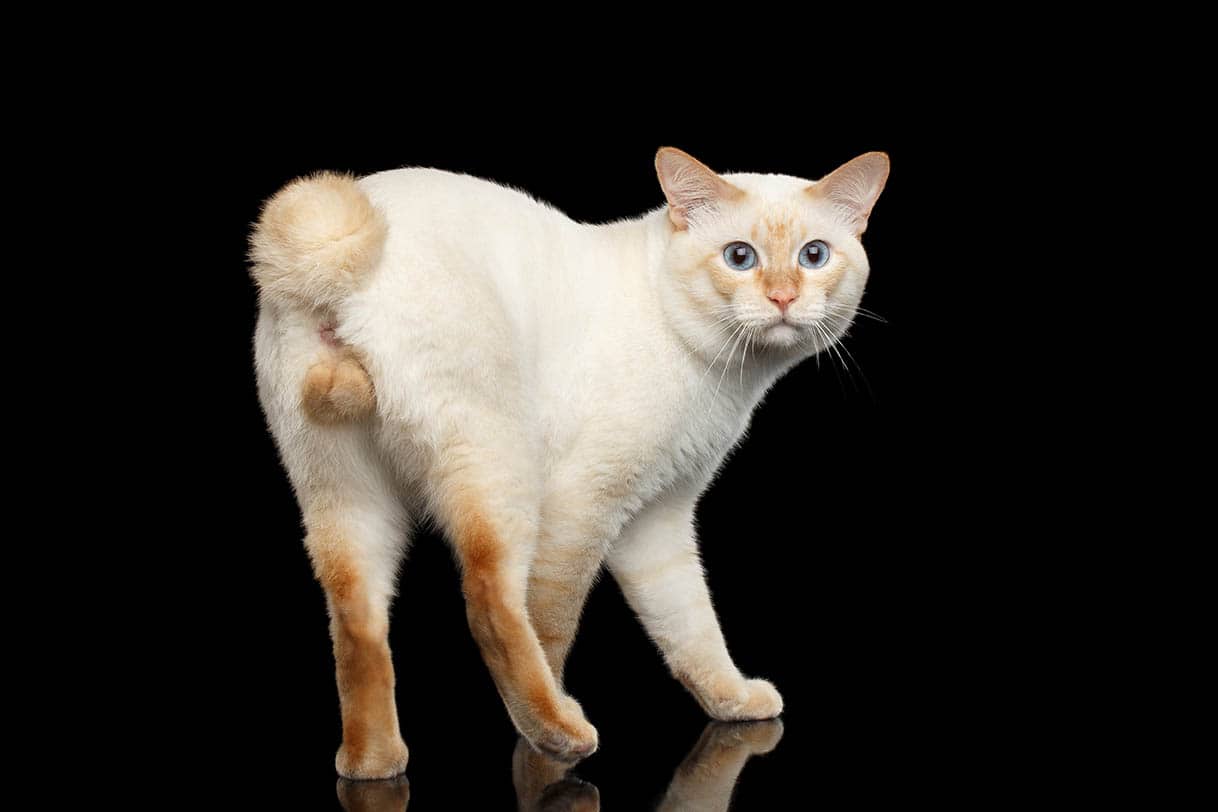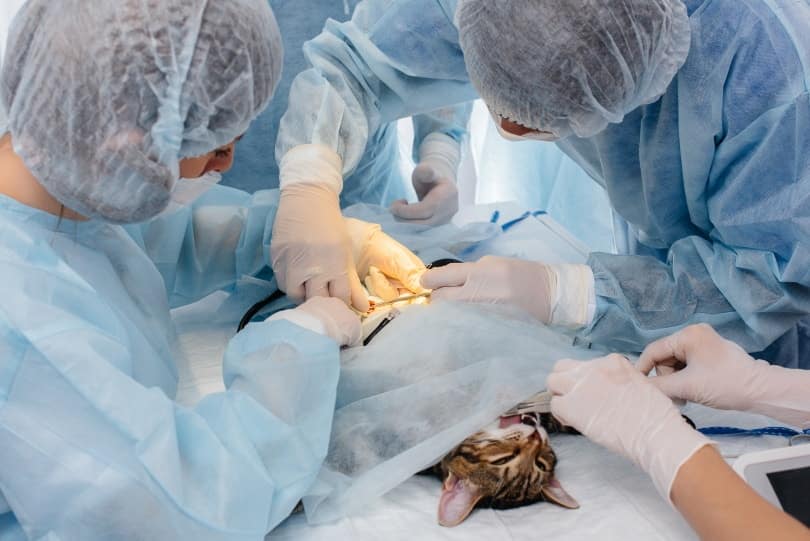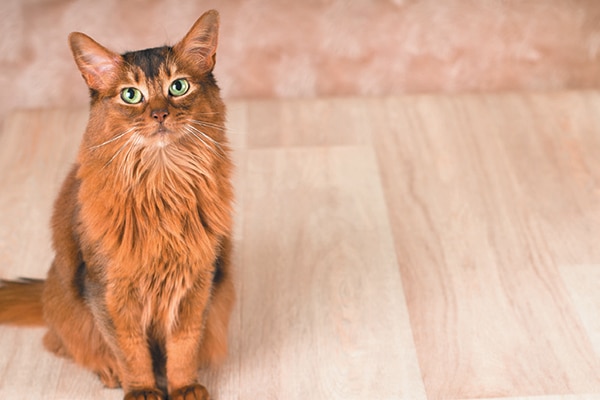When you have a male kitten, you must make the important decision about whether to get him neutered. It can be helpful to know the differences between neutered and unneutered males. There are significant behavioral differences, as well as medical reasons, that may convince you to get your cat neutered.

Overview of Neutered Male Cats
Physical Differences
How physically different a neutered male is from an unneutered male depends on the age at which he is neutered. Other than the lack of testicles in a neutered cat, cats that are neutered before reaching sexual maturity won’t develop hormone-related physical changes. Males neutered before turning 6 months old have small heads and overall stature and don’t develop smelly tail glands and penile barbs. They tend to be less muscular than their unneutered counterparts.
Males that are neutered after 12 months of age or that have reached sexual maturity will retain a few of the physical traits of an unneutered male cat, but they will lose most of them over time. Intact males have strong-smelling urine and large scent glands near their tails. Neutered cats also tend to be cleaner than unneutered cats overall.
Behavioral Differences
Male cat behavior differs significantly between neutered and unneutered males. Neutered males stay close to home. While a small percentage will spray and mark their territory, the behavior is much less common in neutered males. Most will stop the behavior once testosterone is removed from their system, if they develop the behavior at all.
Neutered male cats aren’t as aggressive toward other male cats, but fights can still happen, particularly if you have a male neutered in adulthood. As they spend less time fighting, they are less prone to infections and infectious diseases.
Neutered males have no sexual interest in females and thus get along with them. Neutered males are also similar to female cats in their grooming behavior. As they don’t feel the need to spend their time finding a mate, they groom frequently and keep their coats clean. Since they don’t develop smelly anal glands, they are more pleasant to share a home with.

The Physical Appearance of Neutered Males:
- Small heads
- Slim, not very muscular
- Lack of testicles
Behavioral Characteristics of Neutered Males:
- Unlikely to mark their territory
- Stay close to home
- Clean
- Little to no aggression toward other males
Overview of Unneutered Male Cats
Physical Differences
The most obvious physical sign that a male cat is unneutered is the appearance of testicles. These are located under the tail. In some cases, male cats are cryptorchid, meaning their testicles remain inside the abdomen and are not visible from the outside. This is rare, but it does not impact the cat’s behavior. Cryptorchid cats should be neutered to avoid the higher risk of testicular tumors.
Whether a tomcat’s testicles are out or in, they produce testosterone. The presence of this hormone dictates the physical differences between neutered and unneutered cats. Tomcats are generally larger and more muscular, with thick heads and necks. They also produce a distinctive smell from the large glands near their tail.
These scent glands give tomcat urine a strong, unpleasant odor. Since unneutered cats mark their territory frequently, you will become familiar with the smell if you own an unneutered male.

Behavioral Differences
Tomcats are incredibly territorial and mark their territory constantly. Unfortunately, they do this through urine spraying. In addition to territorial behavior, tomcats have strong urges to roam in search of a mate. The “home range” of an outdoor tomcat is enormous, and they sometimes wander for miles in search of a female.
If they can’t wander because they’re kept indoors, they can become vocal and restless. Tomcats display extreme aggression toward each other. If you’ve never experienced a catfight, it’s essential to know that they are vicious, and injuries are common.
Since their primary goal is to find a female, tomcats are more unkempt than other cats. They pay less attention to grooming and are dirtier than their neutered counterparts.
The Physical Appearance of Unneutered Males:
- Muscular
- Thick necks and heads
- Testicles present
- Strong odor
Behavioral Characteristics of Unneutered Males:
- Frequent urine spraying
- Strong instinct to wander
- Aggressive toward other males
- Neglective of personal hygiene
Should Male Cats Be Neutered?
Let’s go over the pros and cons of having the procedure done.
When Not to Neuter Your Male Cat
The biggest reason not to neuter your cat is that you plan to breed him. If you plan to do so, it’s essential to breed responsibly so you don’t contribute to the already high population levels of homeless cats. You must keep your tomcat confined and prevent him from roaming when you don’t intend to breed.
Some people have concerns about the neuter surgery and choose not to have it done. However, the surgery is considered a safe, routine procedure. It’s important to discuss your concerns with your veterinarian and get answers to any questions you may have.
Medical Reasons to Neuter Your Cat
Having your cat neutered reduces his risk of developing prostate and testicular cancer. He will also be at less risk of getting injured and contracting an infectious disease because he’s less likely to roam or get into fights.
Generally, male cats left unaltered are more likely to be hit by a car, attacked by a predator, or exposed to dangerous viruses like feline leukemia. Neutered male cats generally live 5 years longer than unneutered males.

Practical Reasons to Neuter Your Cat
Neutered males tend to be more pleasant to have around than unneutered ones. Their urine doesn’t smell as bad, they’re unlikely to spray, and they are content to live indoors without becoming noisy and restless. Neutered males smell better and keep themselves cleaner. They are also more likely to get along with other cats, whereas neutered males either fight with other males or stalk females to breed.
If a neutered male cat gets outside by accident, he usually stays close to home. If he wanders a bit, he will come back sooner, and he won’t create unwanted litters of kittens around the neighborhood. For the purposes of keeping a pet cat, a neutered male makes a better companion.
Debunking Myths About Neutered Male Cats
A common myth surrounding neutered male cats is that they become fat and lazy. This is not true. While they may be lazier than unneutered males because they aren’t roaming the countryside in search of a mate, they are just as active as any other cat.
As long as you feed your neutered cat appropriately and give him an adequate amount of exercise and mental stimulation, he will not be fat and lazy. As an owner, it is your job to ensure that your pet’s needs are met. Weight is a product of calorie intake and energy output. If these factors are balanced appropriately, you shouldn’t be concerned about your cat becoming overweight.
Quick Comparison of Neutered vs. Unneutered Male Cats
| Neutered Males | Unneutered Males |
| No testicles | Testicles present |
| Small head and neck | Thick head and neck |
| Urine is less smelly | Urine is smelly |
| Little or no urine spraying | Excessive urine spraying |
| Gets along with other cats | Aggressive toward other males |
| Slim, not very muscular | Large, muscular |
| Conscientious about grooming | Unkempt |
| Clean | Dirty |
Conclusion
Your cat’s individual personality may not change as a result of being neutered, but his future behavior and overall enjoyment as a pet definitely will be. Now that you are clear on the physical and behavioral differences between neutered and unneutered cats, you should be able to make a well-informed decision about having the procedure done.
As always, talk over any concerns that you have with your veterinarian. They can provide you with all the information that you need to know about neutering as it applies to your pet’s specific situation.
Featured Image Credit: Nataliya Kuznetsova, Shutterstock
Contents
- Overview of Neutered Male Cats
- Physical Differences
- Behavioral Differences
- The Physical Appearance of Neutered Males:
- Behavioral Characteristics of Neutered Males:
- Overview of Unneutered Male Cats
- Physical Differences
- Behavioral Differences
- The Physical Appearance of Unneutered Males:
- Behavioral Characteristics of Unneutered Males:
- Should Male Cats Be Neutered?
- When Not to Neuter Your Male Cat
- Medical Reasons to Neuter Your Cat
- Practical Reasons to Neuter Your Cat
- Debunking Myths About Neutered Male Cats
- Quick Comparison of Neutered vs. Unneutered Male Cats
- Conclusion













